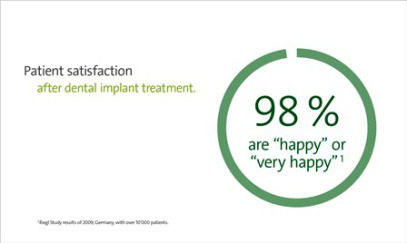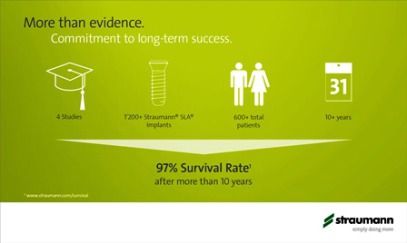Success rates?
With the rapid advances in implant dentistry, dental implants can be expected to function indefinitely.
However, like any dental restoration, there is wear and tear associated with constant use and the restorations supported by implants may need to be repaired or replaced from time to time.
Late problems with the implants themselves can be due to changes in the health of the patient which may result in implant loss. Additionally, changes in habits such as increased smoking and drinking may affect patient health and so, influence implant longevity.
Patients who habitually clench or grind their teeth (a habit known as bruxism ) may risk overloading their implants and this needs to be considered during treatment planning and may be compensated for by using additional implants and providing a night-time bite guard to protect the new implants and restorations they support.
Implants and the restorations they support can be damaged by an accident in the same way that natural teeth can so, the same care to protect these teeth should be taken such as wearing mouthguards during contact sports.
The quality of your home care and willingness to present for regular maintenance reviews has the most influence on the longevity of dental implants. Poor oral hygiene can lead to gum infection, bleeding and soreness and eventually bone loss just as with natural teeth. However, well-maintained implants placed in adequate bone can last for many years and possibly for your lifetime.
Success also depends very much on the quality of the bone into which they are placed. For example, implants placed in the front portion of the lower jaw can have a success rate as high as 98-100%.
In other areas of the mouth, success rates can drop due to the thinness of bone. According to figures that we have today, the success of implants in the front part of the upper jaw can be anywhere from 90-95%. Success rates of implants in the back part of the upper and lower jaw can be in the 85-95% range.
Occasionally dental implants do fail. In many instances, they can be replaced, after a suitable healing period, with another implant, usually of a slightly larger size. Failure rates in our practice are very, very low.





